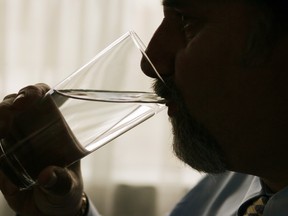Mayor calls unilateral decision to end the treatment an insult to those who have been drinking fluoridated water for decades.

“Montreal made a decision without any consultation or discussion, either with the cities or the residents,” Bourelle said in a phone interview Friday. “It’s an insult to the population of Beaconsfield and all the cities that are getting fluoride in their water.”
At a coming agglomeration council meeting, the city plans to propose to end fluoridation treatment in the two plants, which cover more than 143,000 people in Pointe-Claire, Beaconsfield, Kirkland, Baie-D’Urfé, Dorval and a part of Dollard-des-Ormeaux. The rest of the island doesn’t have fluoride in its water.
“It’s completely wrong,” Bourelle said. “There is no scientific reason to do what they’re doing.”
Bourelle said as a demerged city, he has no say on the council, as all the demerged cities make up only 13 per cent of the vote on the council. So despite the fact his municipality would be affected, Montreal has the deciding power.
At its council meeting last Monday, the city of Beaconsfield passed a resolution asking Montreal to reconsider that decision. The motion pointed out the city’s public health department is in favour of keeping fluoride in the water.
In fact, a 2011 publication on the department’s website said scientific studies have demonstrated fluoride was called an inexpensive way to bring numerous health benefits to the public. It said children in the province, where most of the water isn’t fluoridated, suffer from an incidence of cavities 40 to 50 per cent higher than their counterparts on the rest of the continent, and one dollar spent on fluoridation saved between $60 and $100 in dental care down the road.
The Gazette reached out to Montreal Public Health, but did not receive a reply by the time of publication.
Bourelle hopes provincial authorities intervene, and other groups support Beaconsfield’s position.
“It’s recommended by experts, and it’s commonly known to be beneficial,” he said.
Bourelle isn’t alone. The mayor of neighbouring Baie d’Urfé has also expressed opposition to the change.
“The towns that are implicated should be consulted and our population should be consulted, but that doesn’t appear at the moment to be the plan,” Heidi Ektvedt told The Gazette earlier this week.
“We did reach out to Montreal as a city and we did request a meeting with them. That meeting didn’t happen the way we had asked for it and, instead, we’re presented with a fait accompli.”
Baie d’Urfé has passed a similar resolution opposing the change, and Bourelle expects the other municipalities that are affected will follow suit during their next council meetings.
Factors that led to the city’s proposal include the safety of city employees handling corrosive chemicals, uncertainty around fluoride’s health effects, and the high maintenance cost of fluoridation, Montreal city councillor Maja Vodanovic said.
“We don’t want to use water as a vehicle for medication. We don’t want to use water as a vehicle for pharmaceuticals,” Vodanovic told The Gazette.
A spokesperson for Vodanovic’s office said the cost of keeping the fluoridation program would be $19 million to make the necessary upgrades to the plants, plus $330,000 per year in maintenance.
Leora Schertzer of The Gazette contributed to this report.